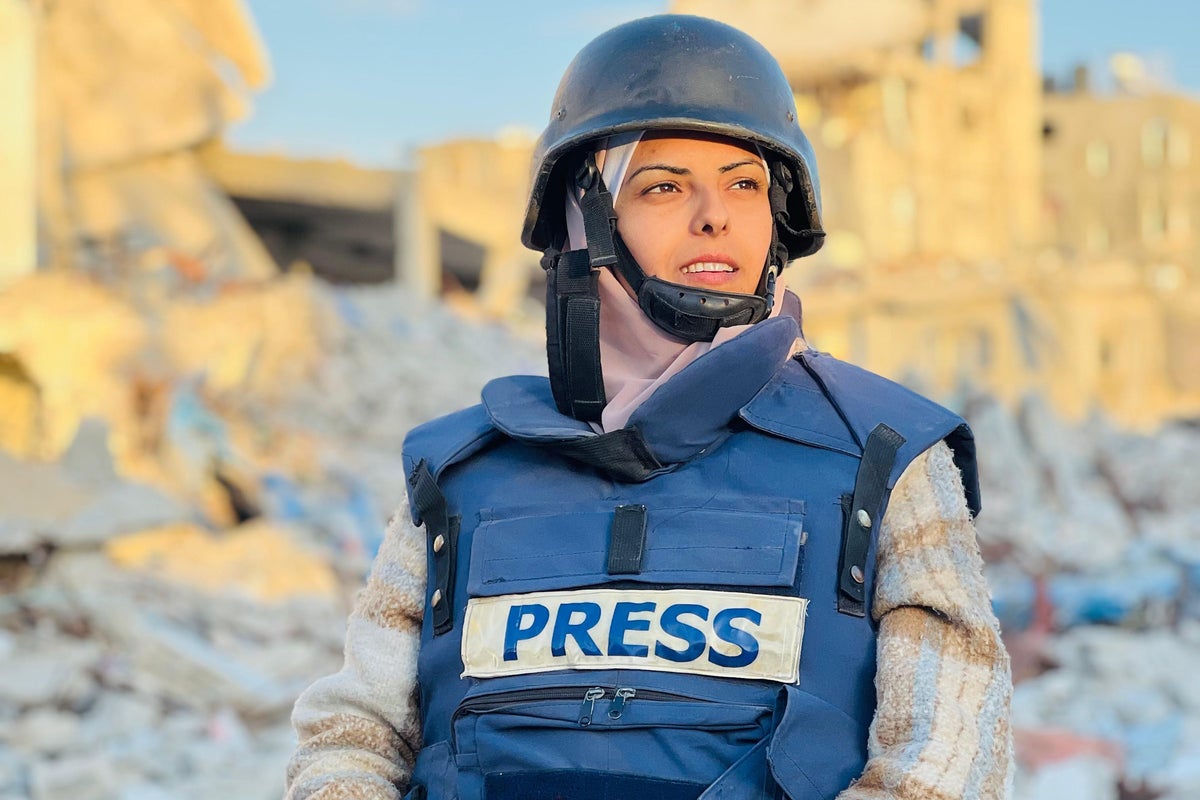In war, truth is the first casualty” is a quotation often attributed to the Greek tragic dramatist Aeschylus, who lived more than two millennia ago. Tragically, it remains true; especially so in the bloody conflict in Gaza.
Today, with a striking front page, The Independent joins more than 200 media organisations, press freedom campaigners and pressure groups, such as Reporters Without Borders (RSF) and the Committee to Protect Journalists (CPJ), in issuing a public appeal.
Our demand is simple: foreign journalists must be granted immediate and unrestricted access to the Gaza Strip. The case for doing so is clear: the world needs to know and to understand the scale of the suffering in Gaza, and to tell the truth about what is happening there.
Palestinian journalists, as many as 200 killed in the battles and bombings, in sometimes suspicious circumstances, have placed themselves in the line of fire to do their jobs. Yet they should not have had to do so alone, and reporters from across the world should have been able to perform that basic function of news gathering, investigation and scrutiny from a completely independent standpoint. In recent weeks, we have seen how the Israeli authorities have tried to smear professional Palestinian colleagues with claims that they are “connected” to Hamas. Very well, then, that is all the more reason to permit those who cannot possibly have had any association with Hamas, or any other Palestinian group, to come into Gaza to witness and retell the sights and the stories of how this merciless and seemingly endless war has been conducted.
Israel says it is too dangerous for journalists from other countries to be in the war zone. There is some grim irony there. There are, after all, allegations that journalists are being targeted by some in the Israeli armed forces. It is barely a week since our Independent Arabia colleague Maryam Abu Daqqa and four others were killed in a double strike on the Nasser medical facility in Khan Younis. The second strike killed many who rushed to the aid of those hit by the first, and came nine minutes later. Israel says it is investigating, but Benjamin Netanyahu described it as a “tragic mishap”.
More broadly, it is the indiscriminate and disproportionate way in which Israel has reduced Gaza to rubble that has made it so hazardous – to anyone and everyone. Designated “safe areas” have turned out to be rarely safe; even if they were, they shifted around so often that it rendered people not only homeless but “placeless” – constantly on the move in a land where nowhere was truly free of jeopardy.
So, yes, the Gaza Strip is undoubtedly dangerous. However, whether the inevitable risks of operating in a war zone are taken by a media organisation or an individual reporter is a matter for them. It is not for the Israeli authorities, an occupying rather than sovereign power in any case, to determine whether a given news organisation can dispatch an experienced reporter to see such a series of consequential events as are unfolding in Gaza – which now include a manmade famine.
A heavy suspicion must be that Israel does not want the world to know what has been happening in Gaza. If it could get away with it, it might have tried to ban all journalism, including by Palestinians, but that was never practical in an age of smartphones. Certainly, the Netanyahu government did not want to be held to account for a weekly toll of Western journalists killed or injured. The foreign media ban is proof that this is a war Israel is ashamed of.
We should not be misguided or vain enough to suppose that the life of a journalist is worth more than anyone else’s. It is not. What does matter, however, is the truth, and the right of journalists to pursue it as they wish, even if it brings with it paying the ultimate price for their bravery. They should be protected as non-combatants under international conventions, but permitted to go about their crucial work as best they can.
In any case, the foreign media ban in Gaza is simply pointless. One day, albeit when it is too late to make maximum impact on governments, the truth will out. One way or another, when the journalists enter the wastelands, they will discover the true scale of the destruction of life and the means of life. The images will be dramatic, and often too obscene to publish. That, after all, is what the Israeli government was rightly anxious to show in the terrible aftermath of the terrorist atrocities committed by Hamas on 7 October 2023. That truth deserved to be told and fully reported, and it appalled the world and engendered huge sympathy for Israel from across the world. If it was right then to tell the truth, then it is no less right now to do so.
